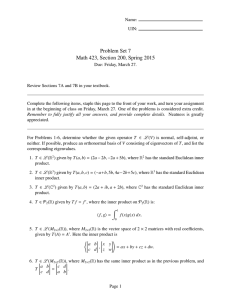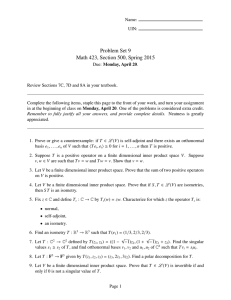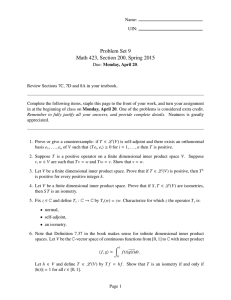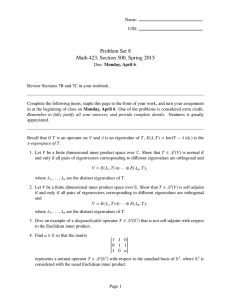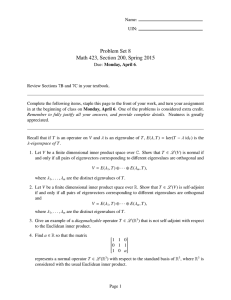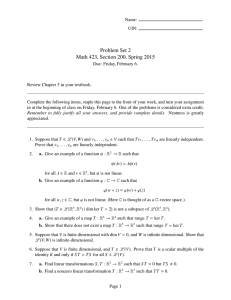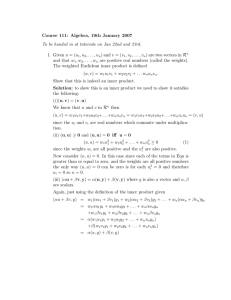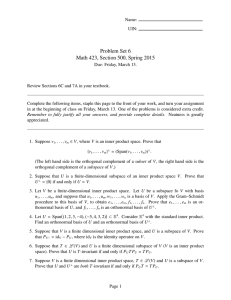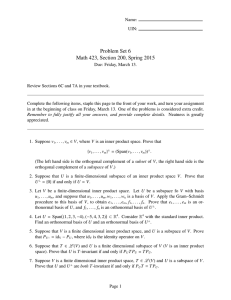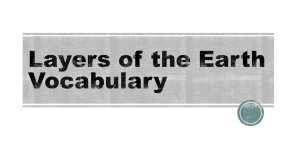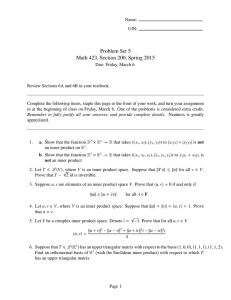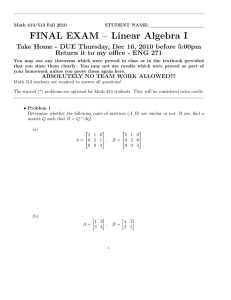Problem Set 7 Math 423, Section 500, Spring 2015
advertisement
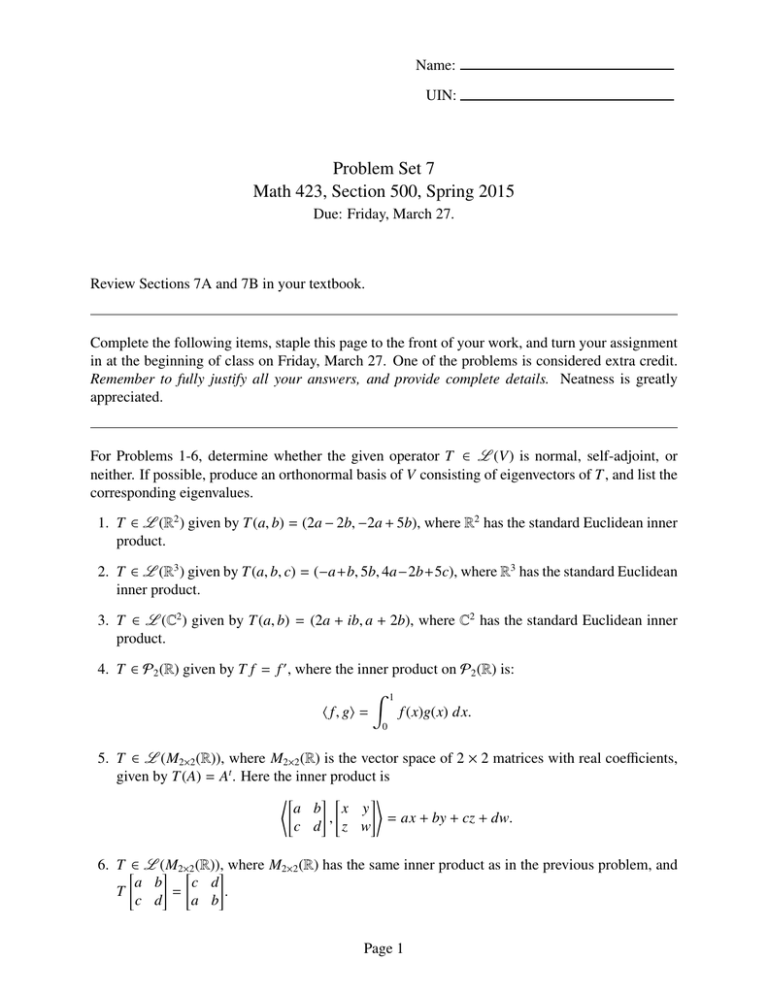
Name: UIN: Problem Set 7 Math 423, Section 500, Spring 2015 Due: Friday, March 27. Review Sections 7A and 7B in your textbook. Complete the following items, staple this page to the front of your work, and turn your assignment in at the beginning of class on Friday, March 27. One of the problems is considered extra credit. Remember to fully justify all your answers, and provide complete details. Neatness is greatly appreciated. For Problems 1-6, determine whether the given operator T ∈ L (V) is normal, self-adjoint, or neither. If possible, produce an orthonormal basis of V consisting of eigenvectors of T , and list the corresponding eigenvalues. 1. T ∈ L (R2 ) given by T (a, b) = (2a − 2b, −2a + 5b), where R2 has the standard Euclidean inner product. 2. T ∈ L (R3 ) given by T (a, b, c) = (−a+b, 5b, 4a−2b+5c), where R3 has the standard Euclidean inner product. 3. T ∈ L (C2 ) given by T (a, b) = (2a + ib, a + 2b), where C2 has the standard Euclidean inner product. 4. T ∈ P2 (R) given by T f = f 0 , where the inner product on P2 (R) is: Z 1 h f, gi = f (x)g(x) dx. 0 5. T ∈ L (M2×2 (R)), where M2×2 (R) is the vector space of 2 × 2 matrices with real coefficients, given by T (A) = At . Here the inner product is *" # " #+ a b x y , = ax + by + cz + dw. c d z w 6. T "∈ L (M # 2×2 " (R)),# where M2×2 (R) has the same inner product as in the previous problem, and a b c d T = . c d a b Page 1 7. Suppose n is a positive integer. Define T ∈ L (F n ) by T (z1 , . . . , zn ) = (0, z1 , . . . , zn−1 ). Using the Euclidean inner product on F n , find a formula for T ∗ (z1 , . . . , zn ). 8. Suppose T ∈ L (V) and λ ∈ F (V is a finite dimensional F-inner product space). Prove that λ is an eigenvalue of T if and only if λ̄ is an eigenvalue of T ∗ . 9. Suppose that V is a finite dimensional R-inner product space. Show that the set of self-adjoint operators on V is a subspace of L (V). 10. Suppose that V is a finite dimensional C-inner product space, and V , 0. Show that the set of self adjoint operators on V is not a subspace of L (V). 11. Suppose that V is a finite dimensional inner product space of dimension at least 2. Show that the set of normal operators on V is not a subspace of L (V). 1/10 2/10 3/10 4/10 5/10 6/10 7/10 8/10 9/10 10/10 11/10 Through the course of this assignment, I have followed the Aggie Code of Honor. An Aggie does not lie, cheat or steal or tolerate those who do. Signed: Page 2 Total/100
